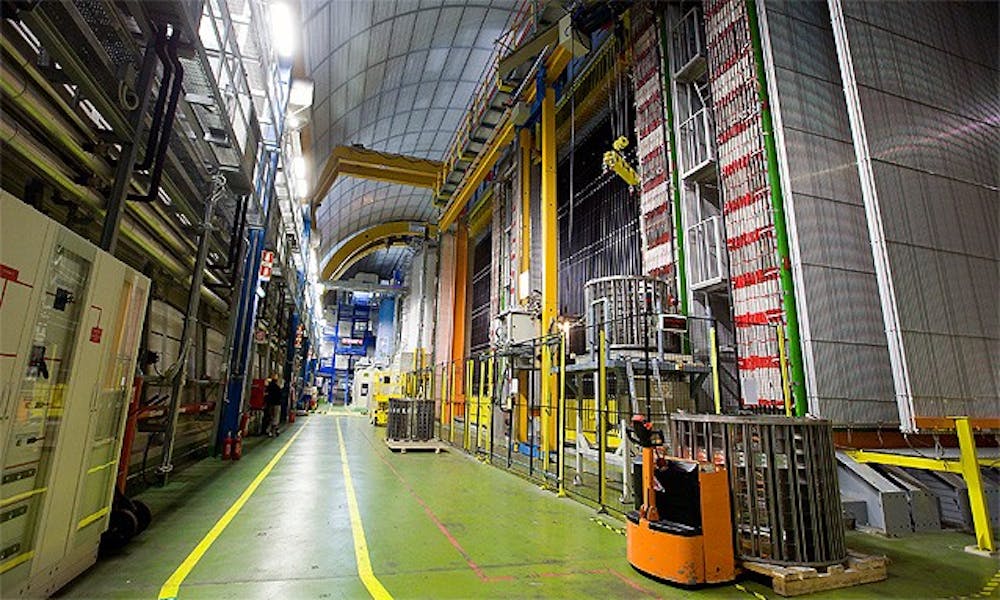Science fiction fans and physicists alike have obsessed for years over the possibility of faster-than-light travel—a prospect that would enable rapid forays to other worlds and possibly even time travel. According to Einstein’s theory of relativity, however, the maximum velocity an object can reach is the speed of light.
Einstein’s theory was called into question last week when scientists working on the OPERA project at the European Organization for Nuclear Research (CERN) in Switzerland observed neutrinos—subatomic particles—that can travel faster than the speed of light. If confirmed, the results could revolutionize physics.
“It’s huge,” James B. Duke professor of physics Berndt Mueller wrote in an email Monday. “If the OPERA finding is a discovery and not an experimental or analysis error, the significance is huge, because it shatters one of the pillars of modern physics—the universality of the speed of light as an upper bound to all velocities.”
The OPERA experiment has been shooting neutrinos at rapid speeds from Switzerland to Italy, but researchers only recently noticed that some of the particles were reaching Italy between 50 and 70 nanoseconds faster than the speed of light would have.
Although the findings would be significant if proven true, Mueller said Einstein’s theory of relativity will remain influential.
“Einstein’s theory of special relativity was designed as a general theory of electromagnetic phenomena. Neutrinos do not interact electromagnetically, so technically, they do not fall under the narrow purview of Einstein’s original theory,” he said.
Although the data from CERN is exciting, as of now they are far from proven. Steffen Bass, associate professor of physics, said he thinks the media is exaggerating the results and that they will most likely prove to be a “false alarm.”
“It is far too early to speculate on the significance of the discovery. The data was made public to encourage other groups to reproduce the experiment, since its results are so strange that there is a high probability that in the end it turns out to be an error or oversight in the analysis of the data,” Bass wrote in an email Monday. “When an independent second experiment confirms the findings, we will be able to take this discovery seriously.”
Bass said he believes Einstein’s legacy would not be greatly affected by the data.
“Einstein’s theories have been ground-breaking in physics and remain a cornerstone of our physics framework to this day,” he said. “Many everyday items we take for granted, from solar cells to GPS navigation devices, rely on Einstein’s theories and that will not change, so I highly doubt that his legacy would be significantly impacted.”
Junior Willie Zhang, a math and biophysics double major, said he thinks the results could change how physicists think of relativity.
“If proven true, these results could have huge implications for Einstein’s theory,” he said. “Relativity deals with objects that possess mass moving through a vacuum, so these results would technically apply.”
Get The Chronicle straight to your inbox
Signup for our weekly newsletter. Cancel at any time.

